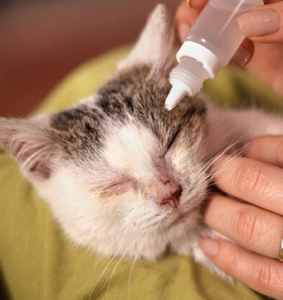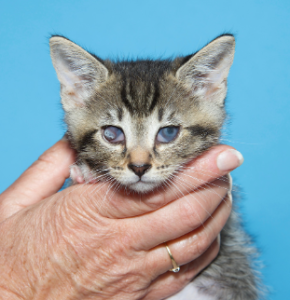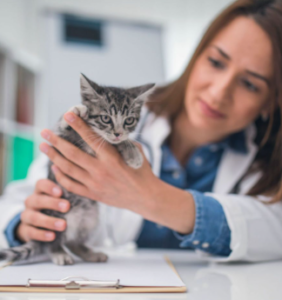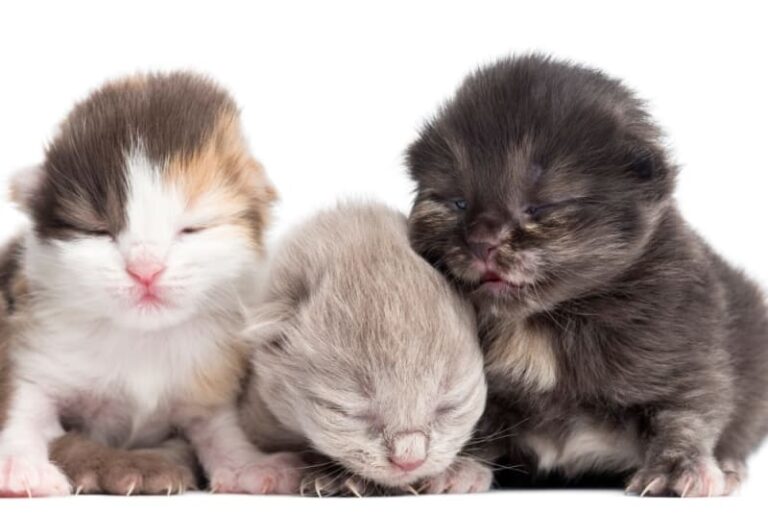Discover gentle and effective home remedies for treating eye infections in newborn kittens, ensuring their health and comfort. When you notice your tiny feline friend squinting or with watery eyes, it could be a sign of an eye infection. But don’t worry, there are safe and soothing solutions you can try at home. Just remember, while these remedies can offer relief, they’re not a substitute for a vet’s expert care.
Learn to recognize the signs of eye infections in newborn kittens, crucial for early intervention and care. Look out for symptoms such as redness, swelling, discharge, or the kitten keeping their eye shut. These can be indications of an infection that needs your attention.
Explore various safe and vet-approved home remedies that can alleviate eye infection symptoms in kittens. A simple saline solution can work wonders for cleaning and flushing out irritants. Also, a warm compress gently applied to the eye can reduce swelling and provide comfort. Here’s a quick guide:
- Saline Solution: Mix 1/4 teaspoon of salt with a cup of lukewarm water. Use a clean cotton ball to wipe the kitten’s eye from the corner near the nose outward.
- Warm Compress: Soak a clean cloth in warm water, wring it out, and gently place it on the kitten’s closed eye for a few minutes.
Understand the importance of professional medical intervention and when home remedies are not enough for kitten eye health. If there’s no improvement within a day or two, or if the infection seems to worsen, it’s time to visit the vet.
Preventative measures can help protect your newborn kitten from future eye infections; learn effective strategies. Keeping the living area clean and avoiding irritants can significantly reduce the risk of infections. Regular check-ups with the vet also ensure that any potential issues are caught early on.
Identifying Eye Infections in Kittens

It’s not just about spotting the symptoms, though. Newborn kittens are incredibly delicate, so it’s important to act swiftly and gently. If you suspect an eye infection, a clean, warm compress can be your first line of defense. But remember, while your tender love and care are important, these tiny creatures often need a vet’s expert touch. So, if you’re in doubt or the symptoms persist, it’s time to seek professional help. After all, it’s better to be safe than sorry when it comes to the health of these adorable little beings!
Safe Home Remedies for Kitten Eye Infections

First things first, let’s talk about cleanliness. Keeping the eye area clean is crucial. You can use a soft, damp cloth or cotton ball to gently wipe away any discharge. Use a separate cloth for each eye to avoid cross-contamination. And here’s a pro tip: make sure the cloth is warm to make it extra soothing. Now, if you’re looking for something a bit more substantial, let’s explore a few options:
- Saline Solution: A simple saline solution can work wonders. Just a few drops in the affected eye can help to flush out irritants.
- Breast Milk: Yes, you read that right! If you have access to breast milk, it’s known for its natural antibodies and can be gently applied to the kitten’s eye.
- Chamomile Tea: Cool, brewed chamomile tea bags can be used as a compress to reduce swelling and have antimicrobial properties.
These are just a few home remedies you can try. But remember, if your kitten’s eyes don’t start looking better in a day or two, or if they seem to be in pain, it’s time for a trip to the vet. An explosion of cuteness deserves the best care, and that sometimes means professional help for those surprise eye issues!
When to Seek Veterinary Care

Here’s a quick checklist to help you decide if it’s time to take action:
- Persistent symptoms that last more than 2-3 days, despite home remedies
- Signs of pain or discomfort, such as excessive meowing or avoidance of touch
- Discharge that becomes yellow or green, or increases in volume
- Cloudiness or change in eye color, which could indicate a more serious condition
- Any behavioral changes like reluctance to eat, play, or interact
Remember, it’s always better to err on the side of caution when it comes to the health of your newborn kitten. After all, they’re relying on you to be their advocate and protector. So, if in doubt, pick up the phone and make that vet appointment. It’s a small step that could make a world of difference for your kitten’s eye health and overall well-being.
Preventing Future Eye Infections
Ever wonder how you can shield your fur baby from those pesky eye infections? Well, prevention is not just about luck; it’s about knowing the right moves. Keeping your newborn kitten’s eyes infection-free is a mix of vigilance, hygiene, and a smidge of common sense. Let’s dive into some proactive steps to keep those peepers as clear as a sunny day!
First things first, cleanliness is next to kitty healthiness. Make sure their living space is as clean as a whistle – regularly disinfect their bedding and keep the litter box spotless. Think of it as setting the stage for good eye health. And here’s a pro tip: avoid using harsh chemicals around your kitten. Instead, opt for mild, pet-friendly cleaners.
- Trim those claws! Kittens are curious creatures, and they’ll paw at anything, including their eyes. Regular nail trims reduce the risk of scratches leading to infections.
- Eye checks are a must. Make it a daily ritual to gaze into those adorable eyes, not just because they’re cute, but to catch any red flags early.
- Nutrition is key. A balanced diet supports overall health, including those important immune defenses that fend off infections.
Remember, while these tips can help, they’re not foolproof. If your kitten’s eyes are looking more weepy than usual, or if you spot any signs of trouble, it’s time to ring up the vet. After all, when it comes to health, especially with the little ones, it’s always better to be safe than sorry!
